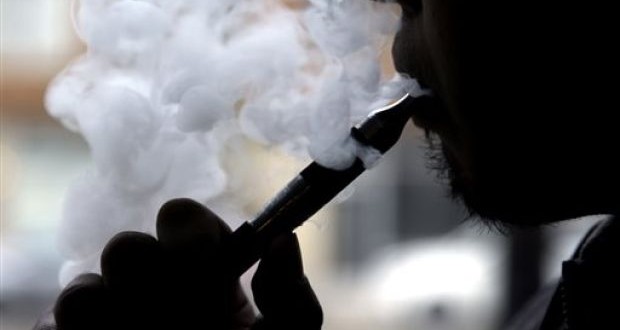The Federal Government is moving to keep e-cigarettes and other smoking related products out of the hands of teenagers.
The Food and Drug Administration is about to ban the sale of e-cigs, cigars, pipe tobacco, hookahs and dissolvable tobacco products to anyone under 18.
Some local shops are worried about the effects on their businesses.
here’s the release
As part of its implementation of the Family Smoking Prevention and Tobacco Control Act signed by the President in 2009, the U.S. Food and Drug Administration today proposed a new rule that would extend the agency’s tobacco authority to cover additional tobacco products.
Products that would be “deemed” to be subject to FDA regulation are those that meet the statutory definition of a tobacco product, including currently unregulated marketed products, such as electronic cigarettes (e-cigarettes), cigars, pipe tobacco, nicotine gels, waterpipe (or hookah) tobacco, and dissolvables not already under the FDA’s authority. The FDA currently regulates cigarettes, cigarette tobacco, roll-your-own tobacco, and smokeless tobacco.“This proposed rule is the latest step in our efforts to make the next generation tobacco-free,” said HHS Secretary Kathleen Sebelius.
Consistent with currently regulated tobacco products, under the proposed rule, makers of newly deemed tobacco products would, among other requirements:
Register with the FDA and report product and ingredient listings;
Only market new tobacco products after FDA review;
Only make direct and implied claims of reduced risk if the FDA confirms that scientific evidence supports the claim and that marketing the product will benefit public health as a whole; and Not distribute free samples.In addition, under the proposed rule, the following provisions would apply to newly “deemed” tobacco products:
Minimum age and identification restrictions to prevent sales to underage youth;
Requirements to include health warnings; and Prohibition of vending machine sales, unless in a facility that never admits youth.“Tobacco remains the leading cause of death and disease in this country. This is an important moment for consumer protection and a significant proposal that if finalized as written would bring FDA oversight to many new tobacco products,” said FDA Commissioner Margaret A. Hamburg, M.D. “Science-based product regulation is a powerful form of consumer protection that can help reduce the public health burden of tobacco use on the American public, including youth.”
“Tobacco-related disease and death is one of the most critical public health challenges before the FDA,” said Mitch Zeller, director of the FDA’s Center for Tobacco Products. “The proposed rule would give the FDA additional tools to protect the public health in today’s rapidly evolving tobacco marketplace, including the review of new tobacco products and their health-related claims.”
The FDA proposes different compliance dates for various provisions so that all regulated entities, including small businesses, will have adequate time to comply with the requirements of the proposed rule.
Products that are marketed for therapeutic purposes will continue to be regulated as medical products under the FDA’s existing drug and device authorities in the Food, Drug &Cosmetic Act.
The proposed rule will be available for public comment for 75 days. While all comments, data, research, and other information submitted to the docket will be considered, the FDA is requesting comments in certain areas, including:
The FDA recognizes that different tobacco products may have the potential for varying effects on public health and is proposing two options for the categories of cigars that would be covered by this rule. The FDA specifically seeks comment on whether all cigars should be subject to deeming, and which other provisions of the proposed rule may be appropriate or not appropriate for different kinds of cigars.
The FDA seeks answers to the many public health questions posed by products, such as e-cigarettes, that do not involve the burning of tobacco and inhalation of its smoke, as the agency develops an appropriate level of regulatory oversight for these products. The FDA seeks comment in this proposed rule as to how such products should be regulated.
Canadajournal/Press Releases
 Canada Journal – News of the World Articles and videos to bring you the biggest Canadian news stories from across the country every day
Canada Journal – News of the World Articles and videos to bring you the biggest Canadian news stories from across the country every day



